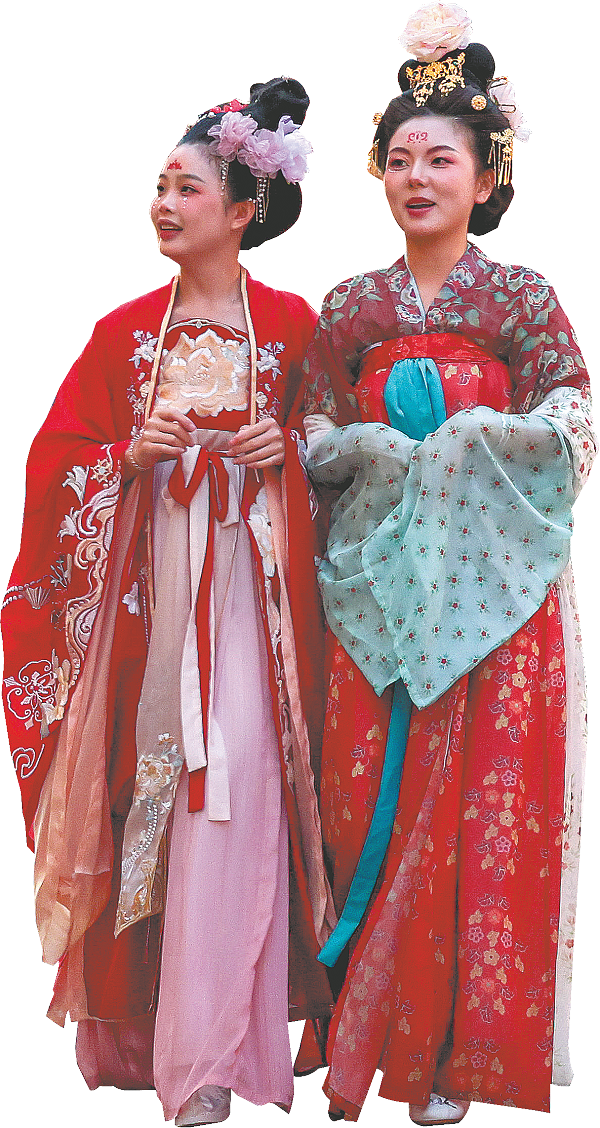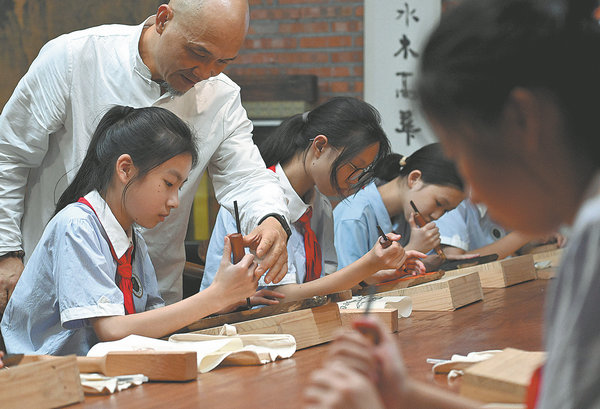

Rich history
Su believes the younger generation's love of traditional culture is not a random occurrence, but a natural result of their pursuit of a cultural life.
"After the 2008 Beijing Olympics, China's economy took a step forward, but cultural advancement temporarily lagged behind. Now that people have more money, they have started to turn their attention to cultural pursuits," he said.
Su added that young people are also attracted by the intrinsic and unique charm of Chinese culture.
"China boasts a long and rich history, with countless traditional cultural treasures waiting to be discovered by the younger generation, " he said.
Moreover, since the 2000s, the post-80s and post-90s age groups have gradually become the main force in society, with higher levels of education and greater cultural acceptance, Su said, adding that they also pursue novelty and individuality, so it's no surprise that young people are focusing on traditional culture.
He said institutions, including museums, have also launched cultural and creative products, attracting numerous young people to line up for purchases, and even scalpers selling refrigerator magnets.
"This situation could not have been imagined in the past. Museums are now also releasing short videos and conducting live broadcasts online," he said.
Social media platforms have become vital for museums to promote themselves. Douyin's 2023 Museum Data Report states that the total number of views of museum-related videos on the platform last year reached about 51.3 billion, 66 times the annual number of museum visitors nationwide.
Yuan Shuwu, an art theory researcher at the Central Academy of Fine Arts, attributes the recent rise in the popularity of traditional culture on social media to government promotion and extensive coverage by mainstream media.
"In the past few years, a series of documentaries and television programs have brought cultural relics and museums into public view, including Masters In Forbidden City in 2016 and The Nation's Greatest Treasures in 2017," Yuan said.
"Since then, there has been a gradual rise in the popularity of traditional culture. I have developed a strong interest in such culture, and after watching the two video series, decided to pursue graduate studies in art at the Central Academy of Fine Arts."

Around the same time, Chinese food blogger Li Ziqi gained fame on YouTube for short videos she made that showcase her traditional and idyllic lifestyle in the Chinese countryside.
In turn, traditional culture has been revitalized due to the increased attention. Yuan said that in Fushan county, Linfen city, Shanxi province, where she now lives, intangible cultural heritage such as paper-cutting has benefited greatly from online dissemination through social media.
"Previously, little attention was paid to these cultural elements, but now it's different. There are many media reports, and inheritors of intangible cultural heritage now talk widely about their work. This has indirectly encouraged more young people to learn about and carry on these traditions," she said.
Kong Dejun, from Zhangxi town, Ganzhou city, Jiangxi, said he and his daughter are enthusiastic about inheriting and promoting their hometown's cultural folk art — the wooden-bench dragon dance.
"Our village has a bench dragon dance team, which includes many young people. I now live with my family in Guangdong, but whenever the village's dance team needs us, we return to take part in practice sessions and performances," he said.
During traditional holidays and summer vacations, Kong, 33, takes his daughter to Zhangxi to watch the performances and learn the dragon dance.
"Children who grow up in cities rarely see such lively and interesting things, so they really like the dance team and are eager to learn about the performances. This is probably the significance of inheritance," he said.
Gao, the lecturer, said young people's enthusiasm for traditional culture shows that historical and cultural confidence has been significantly enhanced in China.
She called for the further integration of intangible cultural heritage with digital new media.
"We should invite more inheritors of this heritage to the internet, to allow more young people to access high-quality cultural content and products through diverse technological means," Gao added.